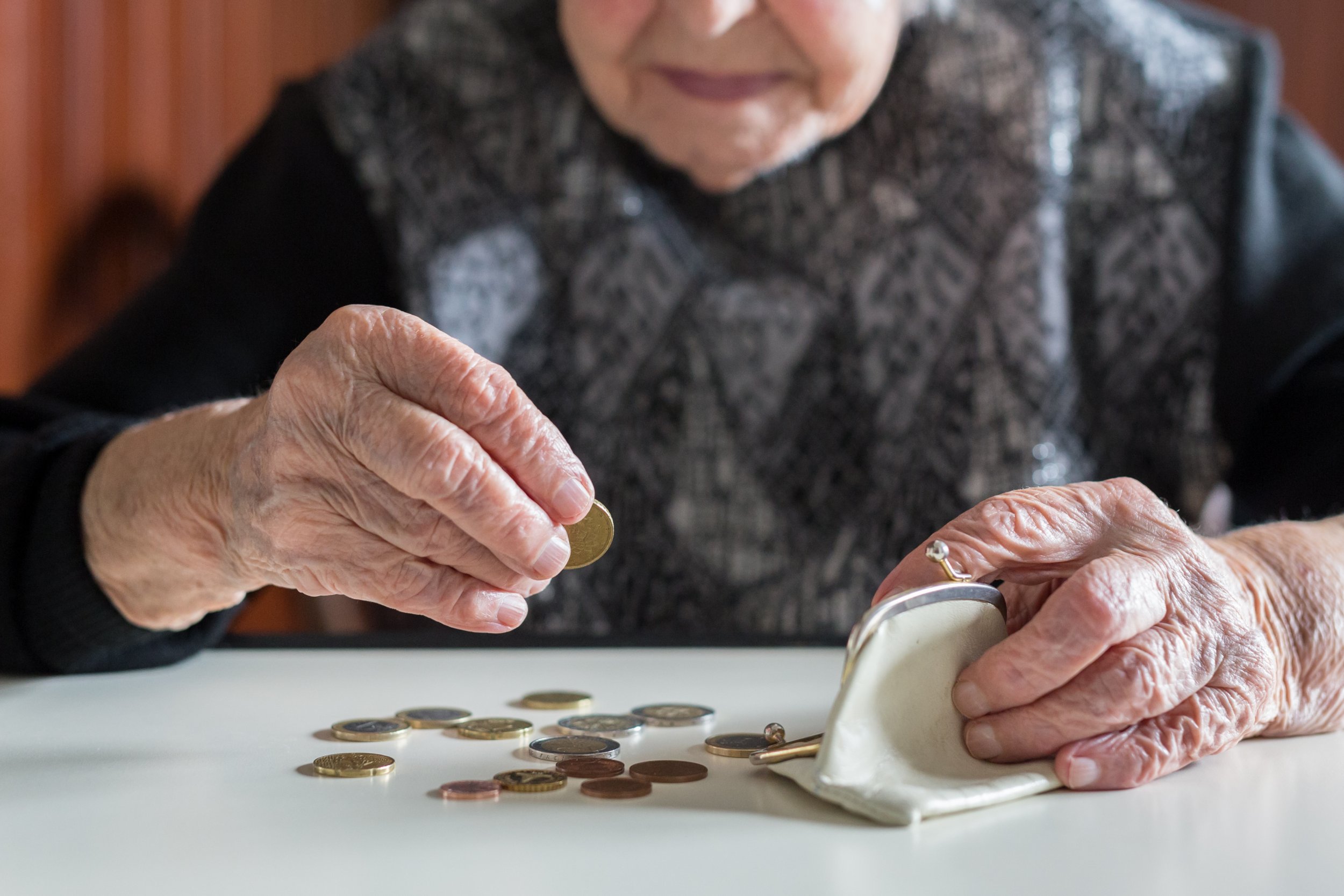
Being easily tricked by scams could be a sign that an older person has the early stages of Alzheimer's disease, scientists have found.
The study published in the journal Annals of Internal Medicine involved 935 older people in the greater Chicago metropolitan area who had not been diagnosed with dementia. The participants filled in a questionnaire to test their awareness of scams. It featured five questions designed to measure their openness to sales pitches, their attitudes towards risky investments, and how informed they were about scams targeting the eldery. Every year for the following six years, the participants underwent neuropsychological tests to check for Alzheimer's and mild cognitive impairment.
Researchers at the Rush Alzheimer's Disease Center in Chicago who led the research also performed brain autopsies on the 264 individuals who had died over the course of the study. The tests looked for the build up of beta-amyloid and tau tangles, both associated with Alzheimer's disease.
A low score on the scam awareness test correlated with signs in the brain associated with Alzheimer's disease, and mild cognitive impairment.
However, the authors stressed the findings of the study aren't robust enough to suggest being scammed means a person will develop Alzheimer's disease.
Dr. Patricia Boyle, professor of behavioral sciences at Rush University Medical Center's Alzheimer's Disease Center, told Newsweek: "The measure of scam awareness used in this study is relatively brief and was not developed for use in clinical settings. Therefore, it is not suitable to identify at an individual level whether someone is at high risk for cognitive impairment. Our study suggests that assessment of behaviors such as scam awareness hold promise for early detection, but additional work is needed to develop and validate measures appropriate for use in clinical settings."
In an editorial accompanying the study, Dr. Jason Karlawish of University of Pennsylvania Perelman School of Medicine described how criminals convinced his patient that he had won the lottery, and were able to steal most of his life savings. "An older adult who is defrauded like my patient or who makes unsuitable investment decisions may end up unable to pay for medications, food, and long-term care. Someone else—the family or the state— has to pay," he wrote.
"This problem has the same urgency as opioids and gun violence."
The researchers hope that a test for scam awareness could one day help to diagnose Alzheimer's, the most common form of dementia which affects some 5.8million people in the U.S. By 2050, this figure is expected to climb to 2050.
Symptoms of Alzheimer's disease, including memory loss, difficulty concentrating, communicating, and making plans, as well as a change in perception not caused by eye problems, and confusion about things like the day or month.
There is currently no cure for Alzheimer's disease, though early diagnosis can help doctors maintain a patient's mental capabilities and slow the progression of the disease, according to the CDC.
The FBI warns older people can be targeted by con artists because they are more likely to have a nest egg, be home owners and have excellent credit.
Older people are also less likely to report fraud, either because they don't know how or are embarrassed about being targeted, or are unaware they have been scammed, the bureau states.
Boyle echoed these concerns. "When an elderly victim does report the crime, they often make poor witnesses," she told Newsweek. "Con artists know the effects of age on memory, and they are counting on elderly victims not being able to supply enough detailed information to investigators. In addition, the victims' realization that they have been swindled may take weeks—or more likely, months—after contact with the fraudster. This extended time frame makes it even more difficult to remember details from the events."
"Estimates suggest that older adults in the U.S. lose more than 35 billion dollars annually to financial fraud and exploitation. Moreover, the psychological and social costs of elder fraud arguably exceed the financial ones. Older adults who are victimized have limited opportunities to recover losses and may become isolated, depressed, and stressed, all of which have very negative effects on health."
Beth Kallmyer, Alzheimer's Association vice president of care and support who did not work on the study, told Newsweek: "Changes in judgment, financial ability or decision-making are often the first symptoms that family members notice. Too often these are denied or dismissed, when they may actually be a reason to get a thorough medical evaluation."
Fiona Carragher, chief policy and research officer at the Alzheimer's Society charity, told Newsweek: "This study backs up previous research by showing, unsurprisingly, that people whose thinking and reasoning skills are declining are at higher risk of potential con artists.
"Not everyone in the study who was less aware of scams went on to develop Alzheimer's, but there was a link. It will be interesting to see if 'scam awareness' tests could become one of the tests to predict the onset of Alzheimer's disease earlier."
This article has been updated with comment from Fiona Carragher.
Uncommon Knowledge
Newsweek is committed to challenging conventional wisdom and finding connections in the search for common ground.
Newsweek is committed to challenging conventional wisdom and finding connections in the search for common ground.
About the writer
Kashmira Gander is Deputy Science Editor at Newsweek. Her interests include health, gender, LGBTQIA+ issues, human rights, subcultures, music, and lifestyle. Her ... Read more
To read how Newsweek uses AI as a newsroom tool, Click here.








